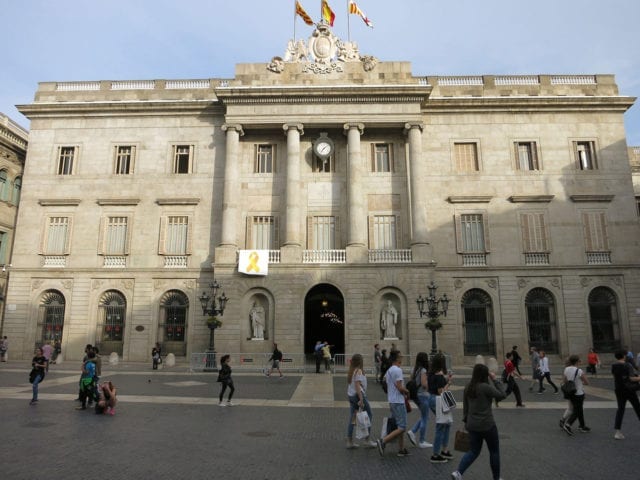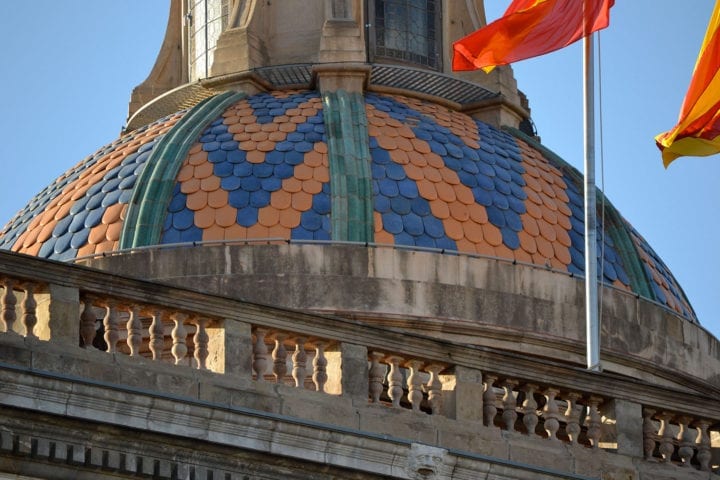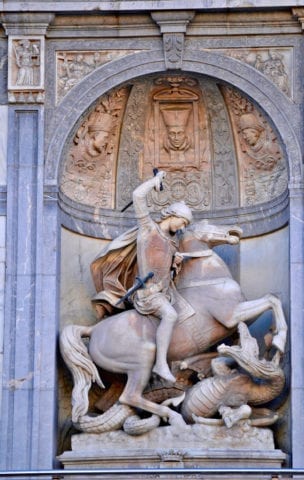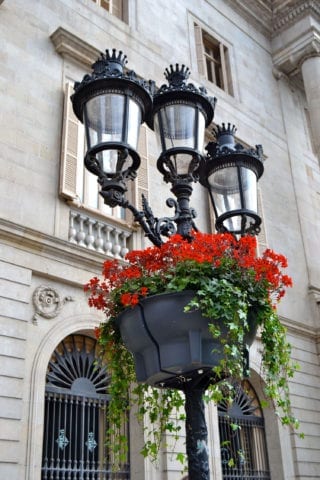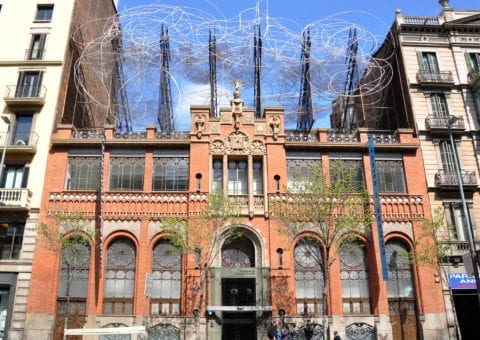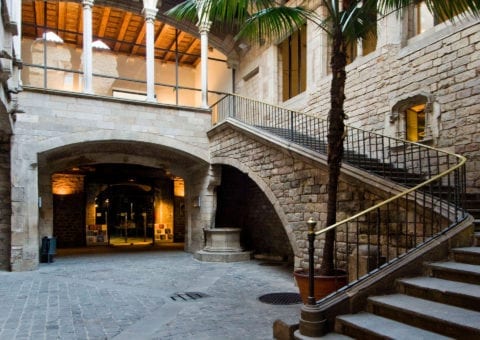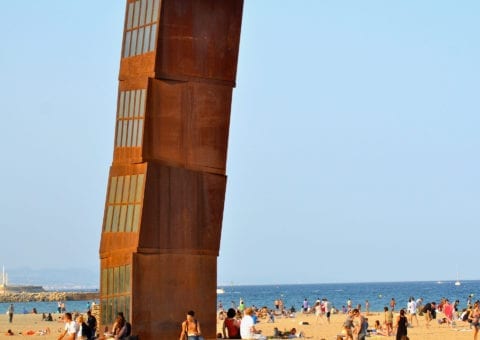It is located in Plaça Sant Jaume, in front of the Palau de la Generalitat de Catalunya.
Next to the neoclassical façade (19th century), there is a Gothic lateral façade (14th century) and a beautiful staircase
Its origins date back to 1369, when construction work began on the Saló de Cent (Hall of the Hundred Jurors) by master builder Pedro Llobet. In the year 1373 during the reign of Pedro III, the first council of the Hundred Jurors was held and in 1714 it was closed. This political concept is attributed to Jaune I who wanted to grant more autonomy to the city and in 1257, he appointed 8 councilors who had to elect 100 representatives of the city, to form part of the Council of One Hundred Jurors.
Highlight:
The lobby with sculptures by Llimona, Gargallo, Miró, and Marés among other artists.
Hall of Chronicles with paintings by Josep Ma. Sert
The Gothic Gallery; in Renaissance style, you can see the date of its construction engraved on one of the capitals, 1575. The stained glass windows that the architect Lluís Domenech i Montaner had installed were removed during the remodeling works of 1929, placing three new ones by the workshop of Anthony Rigalt. The muralist painter Josep Mª Sert was in charge of painting the vaults, in which we can see characters such as; Christopher Columbus, Ausias March or Jaume Balmes among others.
Town Hall Rooms:
Don Quixote Room
Lluís Companys Room
Charles III Room
Hall of the Four Seasons
Commission Room
government room
Good Government Room
work room
Hall of a Hundred
Hall of Chronicles
Next to the town hall, in the Plaza de Sant Miquel, the new offices were built, with a citizen attention center.
www.ajuntament.barcelona.cat
